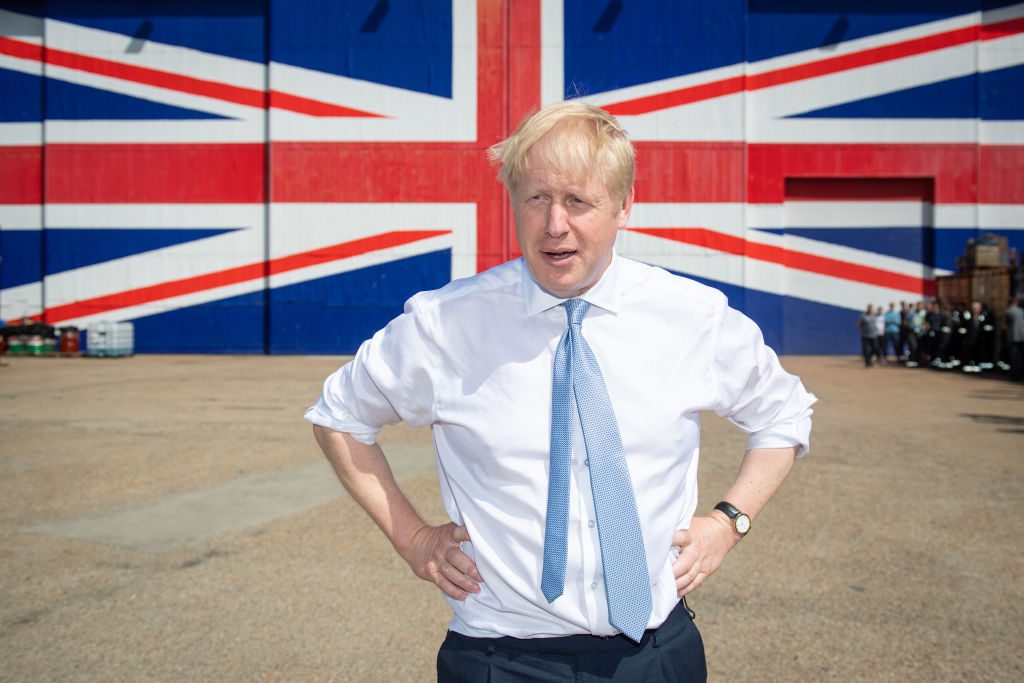Brexit Fails to Start World War III

Has World War III started yet? Anyone who believed former British prime minister and European Union supporter David Cameron in 2016 would think that it had. Cameron claimed that Britain exiting the EU would lead to another global conflict that would destroy Europe as we know it. The reality is that all that has been destroyed is the grandiose nation-building dream of a handful of fanatics.
On February 1, 2020, the United Kingdom officially left the European Union. Its future trading relationship with Brussels is still on the line and Her Majesty’s Government will likely have to sign up for different EU-wide cooperation programs. But in essence, if you wander the streets of London, you’re no longer on EU soil.
Understanding why this matters means understanding the European Union, which is a story for another time. But for the sake of brevity, let’s say this: the EU isn’t just losing a member; it’s losing a net contributor, one of the few nations that pays more into the EU budget than it receives back in all types of grants and programs. This is important not just for the sake of finances, but because the UK’s exit also disrupts the narrative that the EU’s hold of influence and power is ever increasing.
After 47 years of membership in the European Communities (which became the European Union with a significant treaty change in 1992), thousands celebrated Brexit in Parliament Square on Friday night. In Brussels, UK flags were removed from official EU buildings, while many thousands of EU-supporting Brits showed their solidarity with the bloc on social media and in protests in front of embassies around the continent. The UK is still divided over Brexit, but Prime Minister Boris Johnson’s victory in the last general election allowed for more unity. Many Remainers have now accepted that the country is leaving and ought to make a success out of it regardless.
Yet this did not stop some last-minute craziness.
Prominent EU supporter Andrew Adonis likened those celebrating Brexit to Prime Minister Chamberlain celebrating the Munich Agreement, which handed the Sudetenland to Adolf Hitler. Remainer stalwart Alastair Campbell said he’ll refuse to use the new commemorative 50 pence coin, which was released in memory of Brexit. Meanwhile, the hashtag #NotMyBrexit has been trending on Twitter, with the usual narrative attached: Brexiteers are old, empire-loving racists. The debates over the inefficiency of the EU’s farming subsidies, the disastrous protectionist trade policy, the failing common currency, the disregard for the privacy of citizens, the failure to make institutions transparent and accountable—none of these criticisms of the EU seem to have at all registered with Remainers.
As Lord Acton would say: “Power corrupts; absolute power corrupts absolutely.” The centralization of power in Brussels is a danger to Europe’s own citizens beyond just being wasteful and inefficient. Brexit happened because the Brits wanted to have their own laws made in their own country—in essence, an argument for localism.
For the EU, it is a disaster. After decades of pretending that its political structures were essential for surviving in a globalized world, its narrative will now be put to the test by a country infamous for its resilience. The UK proved that despite the bullying, name calling, and disastrous economic forecasts, people can still grow fed up with the bureaucratic superstate that is the European Union.
For the United States, this offers an opportunity of realignment. The UK has until the end of this year to exit the transition period and establish a trade deal with the EU, meaning that starting on January 1, 2021, the UK is a free trading partner. Negotiations will be done in Westminster, not in Brussels, and the Anglosphere will have the chance to conclude trade agreements very quickly. The UK’s international trade secretary, Liz Truss, has championed this issue in the past, leading the way towards deals with Australia, New Zealand, Japan, and the United States.
Beyond trade, the UK will be able to strengthen its foreign policy positions, which up until now had to be carefully calibrated with those of the European Union. It will also free itself from much of the regulatory burden that the EU imposes. One hopes that Boris Johnson will take this opportunity to cut down on red tape and taxation, particularly on businesses.
Most of all, however, Brexit shows that democracy is working. The euroskeptic movement in the UK only came into its own during the late 1990s. Those anti-EU campaigners were very few, but they built—through 20 years of flyering, debating, and organizing—a grassroots movement that succeeded.
This is, if anything, the message of Brexit: euroskeptics were able to pursue a political argument through persuasion, and with success.
Now comes the final test of their ideals. They will be proven right.
Bill Wirtz comments on European politics and policy in English, French, and German. His work has appeared in Newsweek, the Washington Examiner, CityAM, Le Monde, Le Figaro, and Die Welt.